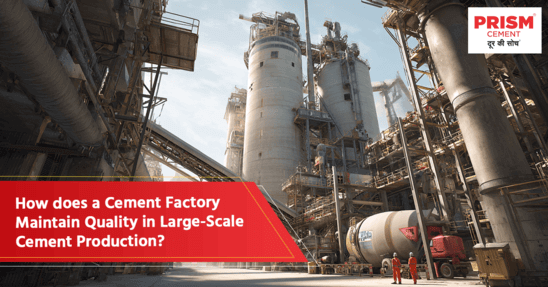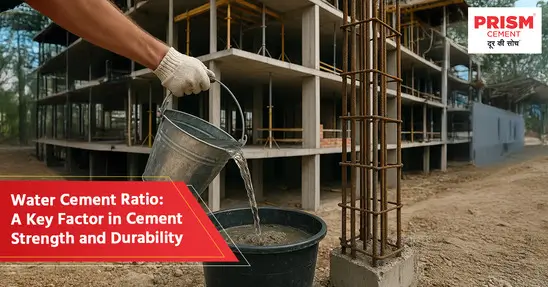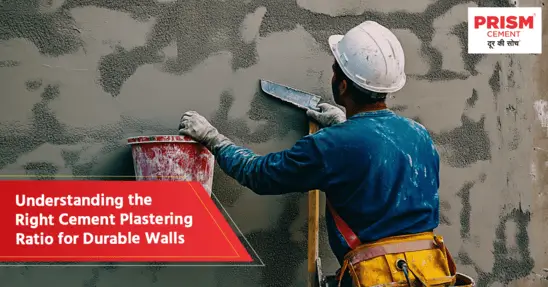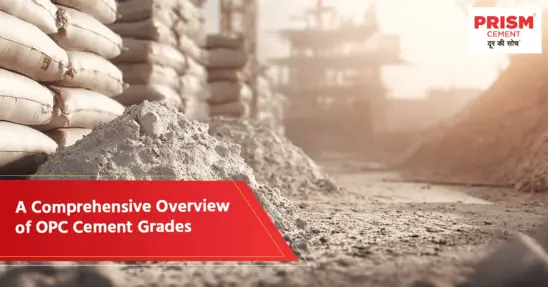In the world of construction, quality is non-negotiable. The strength, durability, and safety of every structure depend heavily on the quality of the cement used. But how does a cement factory ensure consistent quality when producing cement at such massive scales? With advanced systems, strict protocols, and a commitment to excellence, modern cement factories have transformed into high-tech facilities focused on precision and performance.
This blog dives into the inner workings of the cement factory process, from raw materials to final dispatch, showing how cement production is tightly controlled to deliver the best possible results.
Overview of Cement Manufacturing Process
- Raw Material Sourcing
Every great product starts with quality input. In cement factories, the journey begins with the careful selection of raw materials such as limestone, clay, and laterite. These materials must meet specific chemical and mineralogical requirements to ensure a consistent and high-quality final product.
- Crushing and Pre-Homogenization
Once sourced, raw materials are transported to the cement factory, where they are crushed into smaller fragments. This is followed by pre-homogenization, a crucial process where materials are thoroughly mixed to minimize variation, ensuring that every batch of cement starts from a uniform base.
Quality Control at Each Production Stage
Maintaining cement quality is not just about the final product—it's about monitoring each stage with precision.
- Raw Mix Design and Testing
The raw mix is designed based on laboratory analysis to meet the required chemical composition. State-of-the-art systems test the mix to ensure optimal levels of lime saturation, silica, and alumina—essential for high-quality construction cement.
- Kiln Operation Monitoring
The kiln is the heart of the cement production process. Operating at temperatures over 1400°C, it transforms the raw mix into clinker. A modern cement factory uses automated systems and thermal sensors to monitor the process, ensuring consistent heating and chemical transformation.
- Clinker Cooling and Grinding
After burning, the hot clinker is rapidly cooled using high-efficiency coolers. This step locks in the chemical properties required for strong cement. Once cooled, the clinker is finely ground with gypsum and other additives, producing the final cement.
- Final Cement Blending
Before packaging, the ground cement goes through a blending process to balance the chemical composition. This guarantees that the cement quality remains consistent across batches—a key goal for every leading cement factory.
In-Process Quality Checks and Lab Testing
Automated Sampling and Testing
Large-scale cement factories implement automated systems that collect samples at regular intervals. These samples are then tested in real time for fineness, moisture content, and chemical composition. This data helps operators make adjustments instantly, avoiding any compromise in cement quality.
Physical and Chemical Tests
Dedicated laboratories within the cement factory carry out physical tests such as compressive strength, setting time, and workability. Chemical tests verify the levels of compounds like tricalcium silicate and alumina. These tests ensure that the cement adheres to the highest industry standards and is suitable for use in a wide range of building cement applications.
Conclusion
Producing quality construction cement on a large scale requires much more than just machines—it demands precision, planning, and proactive control at every step. From raw material selection to real-time testing and final blending, today’s cement factories leave no stone unturned in maintaining excellence.
At Prism Cement, quality is a core philosophy. With advanced technology, stringent testing protocols, and years of expertise, Prism delivers high-performance building cement like Prism Champion All Weather GOLD shield Cement, which stands out for its superior strength, moisture resistance, and long-lasting beauty.
So, when you think of dependable cement for construction, trust a name that believes in ‘Door ki Soch’—Prism Cement.
FAQs
Q1: How often is quality testing performed in a large-scale cement factory?
Answer: Quality testing in a modern cement factory is conducted at multiple points throughout the day using automated and manual systems. Sampling can occur every 30 minutes, depending on the production volume.
Q2: How does a cement factory ensure consistent quality in large-scale production?
Answer: By using automated monitoring systems, lab-based testing, and precise raw mix control, cement factories maintain uniformity in their output across large batches.
Q3: What quality control measures are taken by a cement factory?
Answer: These include raw mix design, kiln temperature monitoring, clinker testing, and final product analysis, ensuring top-grade cement quality throughout the process.
Q4: What role does technology play in helping a cement factory to maintain quality?
Answer: Technology enables real-time data analysis, automated testing, and process optimization, all of which are critical for consistent cement production quality.
Q5: What technology or automation is used to improve quality control?
Answer: Modern cement factories use robotic sampling arms, X-ray analyzers, online particle size measurement tools, and AI-driven control systems to keep production accurate and efficient.




